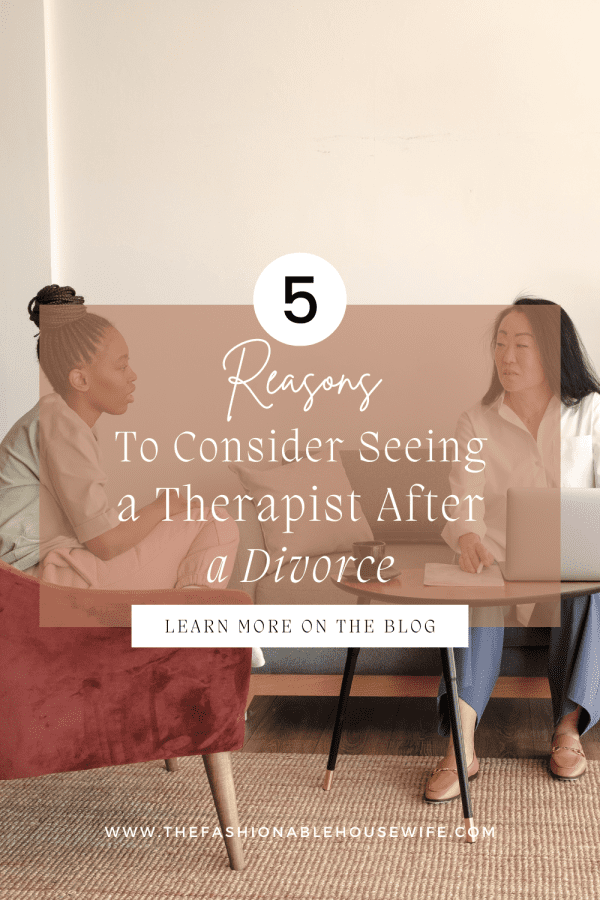
When two people walk down the aisle and exchange “I dos,” the last thing they think about is a divorce down the road. But far too many marriages crash and burn rather than grow and flourish.
According to the United States Census Bureau, the median age for marriage in 2022 was around 30.5 years old for men and 28.6 years for women. Another source notes that the average marriage in the U.S. lasts eight years. While couples can strive to avoid being part of divorce statistics, most divorced couples never thought their unions would end.
A family law attorney will help you navigate the complicated process and get a fair outcome for everyone involved. If a marriage ends, it should end as amicably as possible — if that’s possible.
If your marriage ends in divorce, here are five reasons to consider seeing a therapist. Indeed, going this route can also help before and during the divorce proceedings.
1. You Need Tips to Move Forward
A therapist can help you navigate post-divorce life. Separating from someone you knew for years or decades can be difficult — especially when it’s time to move forward and build a new life. Moving on with your new life can be scary. If the other party had the kind of influence over you that you need to find yourself again, post-divorce life can be a harrowing ride on a bumpy road.
Speaking with a therapist will help you move forward. You’ll see light at the end of the tunnel.
2. You Can Get Help Managing Your Emotions
A therapist can help you deal with the emotions you’ll experience before, during, and after divorce proceedings. If the divorce proceedings are contentious, you may need the support a therapist offers.
Sometimes the two principal parties work together to end their union amicably. They act in the best interests of everyone involved, especially the kids. But there are times when one or both parties are hell-bent on seeking revenge on the party that hurt them. That can make reaching a mutually beneficial outcome difficult.
A therapist can help you deal with the ebbs and flows of emotions. You might feel anger, sadness, fear, and other negative emotions. Fortunately, you can count on a therapist to help.
3. You Can Figure Out What Went Wrong
Another reason it makes sense to see a therapist is if you want to get to the bottom of what went wrong. Were you blown away by your spouse requesting a divorce? It’ll be hard to heal and move forward if you’re at a loss for words and can’t figure out what’s happening.
If it turns out you had a part to play in the marriage breakdown and failed to get things back on track, a therapist can help you identify any mistakes on your part so you can learn from them and avoid repeating them, should you wish to remarry down the road.

4. You Want Recommendations for Self-Care
It can be easy to ignore proper self-care when dealing with a traumatic experience. And few life experiences are as traumatic as a divorce. You need to get enough sleep, drink plenty of water, enjoy healthy meals in moderation, and exercise.
According to the World Health Organization, you need about one hour daily of moderate-to-vigorous physical activity and three days per week of bone-and-muscle-strengthening activity. Most people aren’t getting sufficient physical activity. And it can be easy to let things slip between the cracks during turbulent times.
By seeing a therapist, you can get help with self-care. You need to consider your well-being to move forward successfully after a divorce.
5. You Need to Know How to Help Your Kids
Yet another reason to see a therapist after getting a divorce is to learn how to help your children. Divorce hurts kids the most. The process is a game-changer and can shake their sense of well-being, safety, and security. A therapist can give you tools to help your children not only cope with the divorce, but also gain the courage and support to move forward.
These are five reasons to see a therapist before, during, and after a divorce. Divorce is difficult for everyone involved, and there’s no shame in reaching out for help dealing with it.








